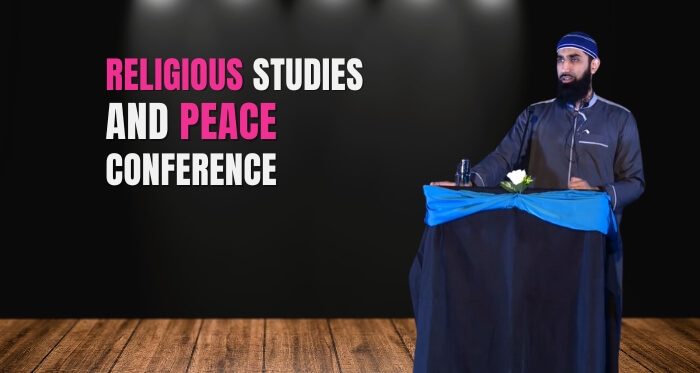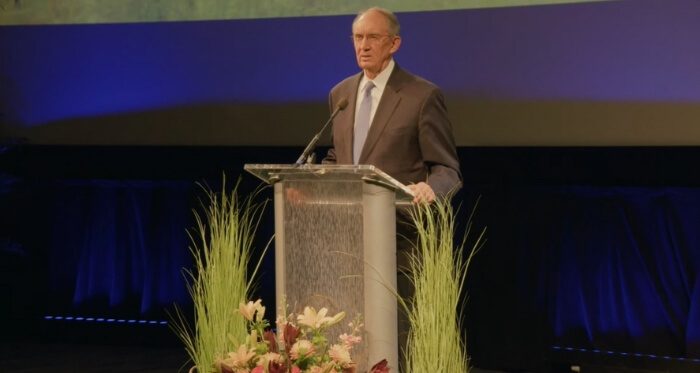Embarking on the religious studies and peace conference journey often presents a common problem: “What to wear at a religious studies and peace conference?” This question takes on a new dimension when you’re attending an event that touches on sensitive areas, such as religious studies and peace conferences.
It’s quite simple: you should opt for attire that is both modest and respectful. When reflecting on what to wear at a religious studies and peace conference, a safe bet is business casual, offering a perfect blend of professionalism and ease.
Additionally, respecting cultural sensitivities and norms is paramount. Your attire doesn’t only reflect your style but also your respect for the diverse backgrounds and beliefs represented. Join us in this blog as we explore comprehensive guidelines for making appropriate fashion decisions for such occasions.
The Purpose of a Religious Studies and Peace Conference
Religious studies and peace conferences serve as vital platforms for dialogue, learning, and negotiation, often bringing diverse perspectives into a harmonious discussion. These events delve deep into understanding various faiths and ideologies, promoting a culture of peace and acceptance. Below, we explore the core purposes of such impactful gatherings.

- These forums foster dialogue, allowing participants to engage in meaningful discussions about faith and spirituality.
- They illuminate diverse religious practices, helping attendees appreciate and understand global spiritual traditions.
- By promoting peace, such conferences aim to mitigate conflict that arises from religious misunderstandings.
- They facilitate scholarly research, offering insights into the intricate relationship between religion and peace.
- Networking opportunities abound, connecting like-minded individuals who strive for harmony and mutual understanding.
- Educational workshops and speeches provide deeper insights into peaceful coexistence within varied religious frameworks.
Conclusively, religious studies and peace conferences play a pivotal role in bridging divides between different faith-based groups. Through education, dialogue, and collaboration, they create pathways toward a more tolerant and empathetic global society.
Types of Religious Studies and Peace Conferences
In the intricate realms of understanding faith and fostering global peace, religious studies, and peace conferences are indispensable. They vary in focus, methodology, and participants, addressing different aspects of the complex relationship between religion and peace. Below we explore the distinctive types of these conferences, each unique in its approach and objectives.
Interfaith Dialogues
Interfaith dialogues are essential for enhancing mutual understanding. These events gather diverse religions, promoting respect and shared values. They help dissolve misconceptions, fostering global religious harmony.
Academic Symposia
Focusing on scholarly insights, academic symposia dissect religious ideologies critically. Experts discuss historical, philosophical, and theological perspectives. These conferences contribute significantly to academic advancements in religious studies.
Peace Negotiation Forums
Peace negotiation forums are instrumental in conflict resolution. Participants negotiate using religious values, advocating for peace. These crucial discussions often aid in resolving deep-seated intergroup conflicts.
Cultural Exchange Programs
Cultural exchange programs celebrate religious diversity. Attendees share traditions, practices, and stories, enriching their cultural insights. These experiences strengthen communal bonds and global understanding.
Spiritual Retreats
Spiritual retreats prioritize personal religious experiences. Participants engage in practices across various faiths, seeking inner peace. These gatherings are often transformative, promoting individual and communal harmony.
The multifaceted nature of religious studies and peace conferences underscores their vast potential to foster a more inclusive, peaceful global community. By understanding these variations, individuals and groups can better participate in and contribute to these meaningful discussions and activities.
What to Wear at a Religious Studies and Peace Conference?
Deciding what to wear at a religious studies and peace conference involves balancing respect, professionalism, and consideration for various cultural sensitivities. Such events require attire that reflects solemnity and respect due to the diverse belief systems represented. Here’s a guide on how to dress appropriately for these occasions:
Business Casual Attire
A safe choice for these conferences is business casual attire. This style, while maintaining professionalism, offers a more relaxed feel than traditional business wear. For men, this might include dress slacks and a collared shirt, perhaps paired with a blazer. For women, trousers or a knee-length skirt paired with a blouse or a modest dress can be appropriate. The key is to look professional yet approachable.
Modesty is Key
Given the diversity of religious backgrounds at such conferences, it’s essential to dress modestly. Avoid clothing that is too revealing, such as low necklines, very short hemlines, or tight-fitting items. Opting for higher necklines, longer skirts or trousers, and avoiding overly flashy accessories shows respect for varying norms and beliefs.
Consider Cultural Sensitivities
If the conference involves participants from specific religious backgrounds or is held in a place with strict dress codes, research and adhere to those cultural norms. For instance, some cultures or religious events might require head coverings or specific attire. In such cases, it’s crucial to comply with these practices to show respect and avoid unintentionally causing offense.
Comfortable Footwear
Conferences typically involve long hours of standing or walking. Choose comfortable footwear while keeping elegance in mind. Avoid excessively high heels or casual options like sneakers. Instead, opt for professional-looking shoes that you can comfortably wear all day.
Neutral Colors and Simple Patterns
When in doubt, go for neutral colors like black, navy, grey, or beige as they are less likely to draw attention and more likely to convey seriousness and respect. Simple patterns or solid colors are also less distracting and help maintain a professional appearance.
Final Touches: Minimalist Accessories
Accessories can add a touch of personality to your outfit, but remember to keep them subtle and refined. Simple watches, earrings, or necklaces are acceptable, but they shouldn’t be so flashy or large that they become a focal point.
By choosing modest, professional attire that adheres to cultural sensitivities, attendees can ensure they contribute to a comfortable, inclusive environment conducive to meaningful dialogue and collaboration.
Essentials You’ll Need at a Religious Studies and Peace Conference
Attending a religious studies and peace conference is a deeply enriching experience, often requiring thoughtful preparation. Beyond intellectual readiness, physical essentials are also crucial for a productive presence.Here’s a concise guide to what you should consider packing:
- Conference Agenda: Keep your schedule accessible; it’s vital for time management. Knowing the program helps you navigate the event efficiently.
- Note-taking Materials: Whether digital or traditional, these are a must. Recording sessions will assist in retaining crucial information.
- Formal Identification: Often overlooked, IDs are necessary. They ensure smooth registration and security checks at the venue.
- Cultural Sensitivity Guide: Understanding cultural nuances is respectful. It prevents unintentional disrespect during cross-cultural interactions.
- Comfortable Attire: Dressing appropriately is key; comfort enhances concentration. Choose outfits that respect cultural norms yet feel comfortable.
- Translation Devices: These are indispensable for international conferences. They aid in overcoming language barriers ensuring effective communication.
- Business Cards: Networking is a significant part of the experience. Cards facilitate future contact with peers and experts alike.
- Chargers and Adapters: For all your electronic devices, these are essential. They prevent the inconvenience caused by drained batteries.
- Health Essentials: Basic health items are vital; they tackle minor ailments. Packing medicines and hygiene items can be a lifesaver.
- Open Mind: Perhaps the most crucial necessity is intangible. Approach discussions with openness and respect for diverse perspectives.
A well-prepared attendee ensures not just personal comfort but also respectful and meaningful engagement with others. Packing these essentials can significantly enhance your experience at a religious studies and peace conference, making it both enlightening and memorable.
Final Thoughts
Religious studies and peace conferences present an invaluable opportunity for dialogue, understanding, and growth, both personally and communally. With such significant aims, it becomes crucial to approach them with the right mindset and preparation.
Central to this preparation is the often-debated topic of “what to wear at a religious studies and peace conference?” While attire reflects personal style, it also showcases one’s respect and sensitivity towards diverse beliefs and practices.
By opting for modest and culturally considerate outfits, attendees can ensure they’re dressed for success. Beyond clothing, equipping oneself with essential tools and an open mind will go a long way in enhancing the conference experience and fostering a harmonious environment for all.






